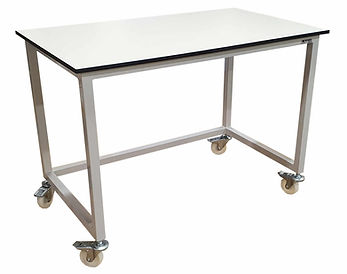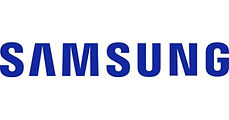Cleanroom Tables & Benches
Cleanroom Work Benches for Clinical Environments
These tables are specifically designed for use in Cleanroom environments. They are easy to clean and maintain.
Clean Room table options:
Worktops:
-
Trespa BASE worktop
-
Stainless Steel 304 or 316
Frames:
-
Standard powder coated mid steel
-
Powder coated Stainless Steel 304 or 316
-
Polished Stainless Steel 304 or 316
-
all options available on feet or castors
-
-
Adjustable height cleanroom table options are available
✅ Get a Quote Today
Quick responses. Expert advice. UK-made lab tables, built to last.
👉 Request a Quote or - Speak to an Expert 01535 602141
Reasons to buy:
-
10 Year Guarantee
-
Tables designed for Clean Room facilities
-
Frames are fully welded, close ground & crevice-free
-
Made To Your Sizes
-
Made in Britain
-
Trespa Worktops
-
Free Standing or Wall Fixed
-
Powder Coated Steel Frames
-
Adjustable Height Nylon Feet to Allow Levelling (for wonky floors)
We offer bespoke sizes however here are the most common sizes we produce:
1200 x 600 x 916mm high
1500 x 600 x 916mm high
1500 x 750 x 916mm high
1800 x 750 x 916mm high
2000 x 900 x 916mm high
These Cleanroom Benches are manufactured to your dimensions to ensure they fit your requirement. All our tables carry a ten-year guarantee against normal usage failure.
If you can't see what you require here, call us or send an email. We're here to help.


316 Cleanroom Benches
Metal Frame
Load
Feet
Lower Rails
Guarantee
Powder coated steel frame fully welded 40mm x 40mm x 2mm section
Up to 750KG (our frames can be adapted to take larger loads if required)
Machine threaded adjustable levelling feet
Choice of middle or back rail
10 Years against normal failure
Bespoke. Made to your sizes.
Size
Worktop
16mm Trespa TopLab Base
Cleanroom Lab Tables
Cleanroom table frames are constructed from 40mm x 40mm quality kite marked steel. With its welded joints typically being 3 times stronger than the actual steel. The frame is sand blasted and painted under heat (powder coated) to ensure a tough lasting finish which will not crack, chip or peel like conventional paints. To ensure clients peace of mind the whole frame is supported on 8mm inset welded foot plates which are flow drilled and tapped to accept 12mm levelling feet complete with locking nut mounted. Delivered ready to use.

Here is a selection of clients we work with:
















